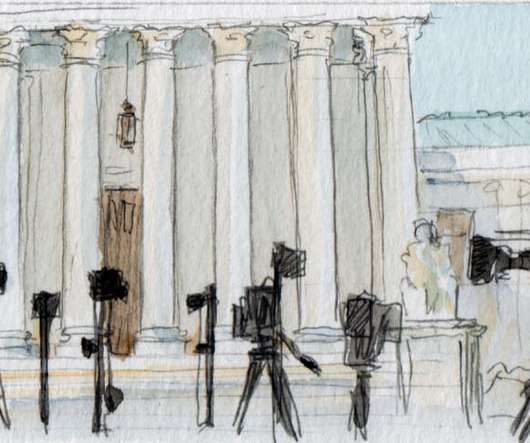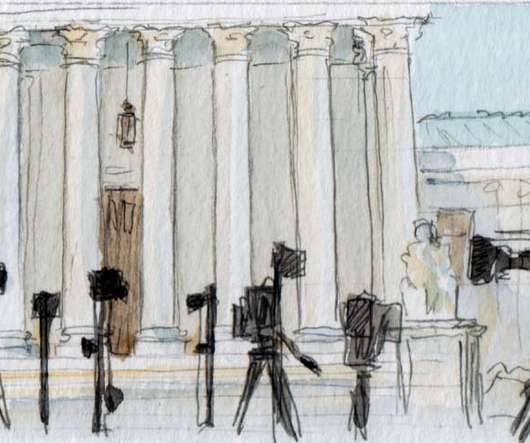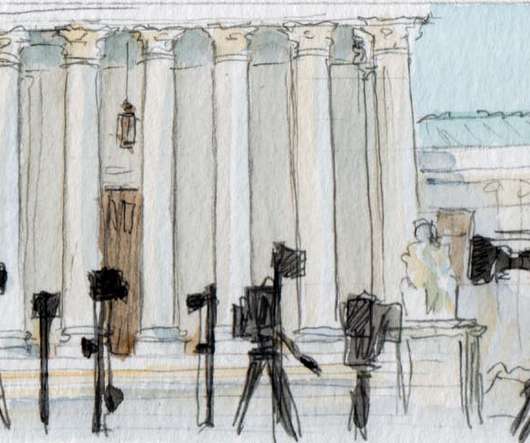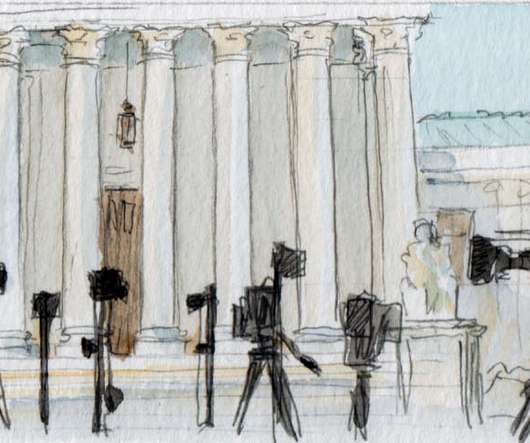“Supreme Court murders stare decisis. Alea iacta est.”
HowAppealing
JULY 1, 2022
“Supreme Court murders stare decisis. Alea iacta est.” Columnist Dana Milbank has this essay online at The Washington Post.

HowAppealing
JULY 1, 2022
“Supreme Court murders stare decisis. Alea iacta est.” Columnist Dana Milbank has this essay online at The Washington Post.

SCOTUSBlog
FEBRUARY 4, 2022
He previously taught seminars on Breyer’s jurisprudence at American University Washington College of Law. Idealogues have sought to reshape the court’s jurisprudence in their own ideological vision, whether liberal or conservative, often at the expense of stare decisis and typically voiced most vigorously in dissenting opinions.
This site is protected by reCAPTCHA and the Google Privacy Policy and Terms of Service apply.

SCOTUSBlog
DECEMBER 10, 2021
Washington. Andrus further argues that the Texas court’s decision conflicts with “vertical stare decisis,” the principle that lower courts must follow the Supreme Court’s decisions. In June 2020, the Supreme Court issued a summary reversal – meaning it decided the case without merits briefing or oral argument – in Andrus v.

SCOTUSBlog
MARCH 30, 2022
Andrus argues that the Texas court “disregard[ed] this Court’s determinations and legal precedents to strain for a result that it prefers,” and in the process violated “vertical stare decisis,” the principle that lower courts must follow the Supreme Court’s decisions. That’s all for this week. Until next time, stay safe ! New Relist.

SCOTUSBlog
APRIL 12, 2022
Texas , which were amply supported by the habeas and trial records, and whether the Texas court disregarded the Supreme Court’s express guidance for conducting a prejudice analysis pursuant to Strickland v.

SCOTUSBlog
MAY 11, 2022
Texas , which were amply supported by the habeas and trial records, and whether the Texas court disregarded the Supreme Court’s express guidance for conducting a prejudice analysis pursuant to Strickland v.

SCOTUSBlog
APRIL 20, 2022
Texas , which were amply supported by the habeas and trial records, and whether the Texas court disregarded the Supreme Court’s express guidance for conducting a prejudice analysis pursuant to Strickland v.
Let's personalize your content